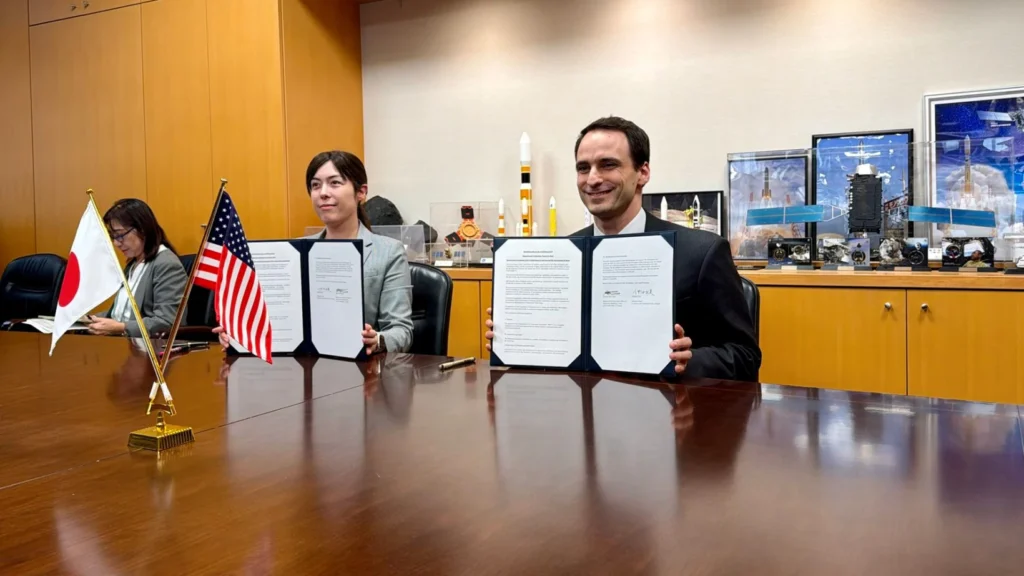The U.S. government has announced new strategic technology deals with Japan and South Korea. These partnerships aim to strengthen collaboration in key innovation areas. Officials say the deals focus on artificial intelligence, quantum computing, biotechnology, fusion energy, and 6G communications.
The agreements are part of a broader effort to advance technology diplomacy. By working closely with two of its strongest allies in Asia, the U.S. hopes to create a forward-looking agenda for global innovation.
Officials emphasized that the deals are not only about research and development. They also aim to enhance security, economic competitiveness, and regional stability. Joint projects will focus on emerging technologies that have high potential to transform industries and national capabilities.
AI is a major area of focus under the agreements. Both countries plan to share expertise, conduct joint research, and explore commercial applications. Quantum computing will also receive significant attention, as leaders recognize its potential to revolutionize computing power and cybersecurity.
Biotechnology and fusion energy are key priorities as well. Scientists and engineers from the U.S., Japan, and South Korea will collaborate on developing new medical treatments, advanced materials, and clean energy solutions. 6G communications is included to prepare for the next generation of wireless networks.
The announcement reflects the U.S. government’s strategy to combine foreign policy with technological leadership. By deepening ties with allies, the U.S. aims to maintain an edge in critical innovation sectors while promoting shared standards and safe practices.
Officials from Japan and South Korea welcomed the agreements. They described the deals as a major step toward strengthening trilateral cooperation. “We are committed to working together on transformative technologies,” a Japanese representative said.
Experts say that these partnerships could have a wide impact on global tech ecosystems. Collaborative research and joint investments may accelerate breakthroughs in AI, biotech, and energy sectors. Companies and research institutions in all three countries are expected to benefit from shared resources and knowledge.
The deals also reflect growing attention to national security concerns. By aligning technological development with allied nations, the U.S. seeks to mitigate risks associated with supply chain vulnerabilities, cybersecurity threats, and geopolitical competition.
Analysts highlight that innovation-driven diplomacy is becoming a central feature of U.S. foreign policy. By linking technology cooperation to international relations, the U.S. hopes to secure both economic and strategic advantages in the coming decades.
In addition to research collaboration, the agreements include education and workforce development initiatives. Students, scientists, and engineers will have opportunities to train and work across borders, fostering talent pipelines in cutting-edge technologies.
The fusion energy projects are particularly notable. Joint efforts aim to advance practical fusion power generation, a potential game-changer for global energy security and climate goals. Breakthroughs in this area could provide clean, abundant energy to millions worldwide.
The 6G initiatives will prepare all three countries for faster, more reliable wireless networks. This could transform industries such as transportation, healthcare, and communication, supporting economic growth and innovation.
Biotech collaboration will focus on medical research, pharmaceuticals, and advanced therapies. The partnerships aim to improve global health outcomes while strengthening domestic industries in each country.
By combining resources, expertise, and strategic goals, the U.S., Japan, and South Korea aim to create a model for international technology cooperation. Officials stress that long-term collaboration is essential to staying competitive in the global tech race.
These strategic technology deals mark a significant step in U.S. diplomacy. They reflect an emphasis on innovation, shared growth, and global leadership. As work progresses, the agreements are expected to have far-reaching effects on technology, security, and economic development across the three nations.

